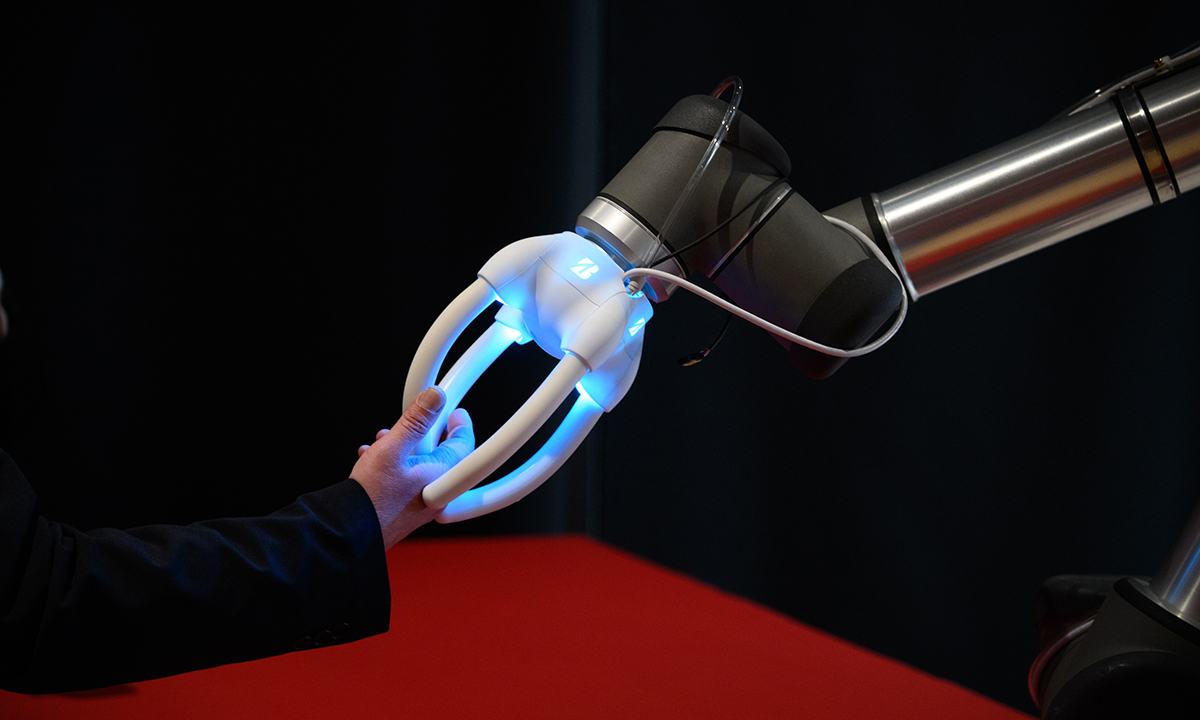
关于人工智能的警告无处不在:这项技术将使工人失业,传播不准确的信息,并让使用人工智能的企业面临无数法律风险。
然而,尽管各种谣言甚嚣尘上,商业领袖们却并不十分担心人工智能——至少一项针对2,800名经理和高管的新调查显示是这样。
人工智能不仅不是他们认为公司面临的最大风险,而且甚至未被列入前20大商业风险。管理咨询公司怡安集团(Aon)在11月7日公布的调查显示,人工智能在企业面临的最大威胁中排名第49位。
企业领导者最担心的问题是“网络攻击或数据泄露”,这在继2021年怡安集团开展上一次调查后再次位居榜首。参与者表示,其他主要担忧包括任何形式的业务运营中断、经济放缓以及无法吸引和留住人才。这些参与者来自公司内部、行业和全球各地。
这些回答表明,企业界内外对人工智能风险的看法存在差异。如果对企业来说还有48个更紧迫的问题,那么人工智能的威胁是否被夸大了?还是企业领导者对新技术过于放任自流?
怡安集团在报告中表示,调查参与者可能弄错了。该公司写道,人工智能“对机构构成了重大威胁”,它“本应被参与者排在更高的位置”。
哈佛商学院(Harvard Business School)的教授卡里姆·拉哈尼专门研究人工智能在商业中的作用,他对此表示赞同,并对《财富》杂志表示:“人们完全坐失良机了。人工智能在很多方面都是一种风险——在该领域做得不到位的风险,或是做了但表现差强人意的风险。”
拉哈尼说:“令人震惊的是,他们把它排在第49位。对我而言,应该排在前五位或前三位。”
流行语疲劳
拉哈尼指出,采用人工智能不像其他技术集成那样可以外包,而是必须在执行层面进行处理。“你必须亲力亲为,我认为许多公司的首席执行官、经理和领导者都没有投入精力去了解相关问题和机遇。”
他说,原因可能在于企业高管近年来对追随科技趋势感到厌倦。商业界充斥着各种流行语——区块链、web3、加密货币、元宇宙、增强现实、虚拟现实,以及现在的人工智能。并不是所有的趋势都像炒作的那样,加密世界因为萨姆·班克曼-弗里德的欺诈活动以及通过VR头显看世界的需求不确定而变得黯淡。拉哈尼表示,看到预示着未来的技术迟迟得不到应用,企业领导者可能会将人工智能视为明天而不是今天要解决的问题,但事实并非如此。
虽然就目前来说,人工智能的威胁在调查参与者看来微不足道,但他们确实承认它会对未来产生影响。调查结果显示,企业领导者预计人工智能将成为未来第17大风险。但他们预计网络攻击仍然将是头号威胁。
许多商业部门可能还没有足够的机会接触人工智能,因此还没有将其视为严重威胁。投资人工智能的六个行业,包括专业服务、金融机构、保险、科技、媒体和通信以及公共部门,都把人工智能列为未来十大风险之一。
大问题
网络攻击一直被列为企业的主要威胁,原因显而易见。根据身份盗窃资源中心(Identity Theft Resource Center)的数据,到2023年10月,每年的数据泄露量都达到了历史最高水平。该组织在今年前三个季度追踪了2,100起黑客攻击事件,影响人数达2.34亿。虽然黑客攻击事件增加,但受害者人数却在下降。2018年,超过22亿人成为数据泄露的受害者。据《快公司》(Fast Company)报道,每年的攻击次数和受害者人数可能远高于报道的数字,该公司去年因为黑客攻击而关闭了八天。
网络入侵会阻碍创收,损害公司声誉,并将个人置于危险之中。上个月,一名黑客发布了基因检测公司23andMe的数据,对德系犹太人进行了针对性攻击。该公司目前正在面临一项关于其安全措施的集体诉讼。
英国政府在今年10月的一份报告里警告称,人工智能之所以会给各大企业带来这样的风险,部分原因在于它加剧了网络攻击的威胁。报告指出,人工智能系统使犯罪者能够以更快的速度实施更大规模的黑客攻击,并取得更好的效果。这些新技术不仅改进了旧攻击技术,例如发送有说服力的钓鱼邮件,而且创造了新攻击技术,比如克隆亲人的声音实施电话诈骗。但报告表示,人工智能也将在保护企业免受网络攻击方面发挥越来越大的作用。
拉哈尼说:“长期以来,网络一直被企业所忽视。在过去的五年里,它已经成为一个极其重要的问题。”董事会越来越注重任命具有网络安全背景的领导者,聘请包括赎金谈判专家在内的危机公关团队,并对公司高管进行相关培训。
具有讽刺意味的是,“同样的事情也发生在人工智能领域。”他告诉《财富》杂志。“人们忽略了这一点,接下来会发生的是,从董事会到员工个人都会遇到同样的问题。这些公司对此没有给予足够的重视。”(财富中文网)
译者:中慧言-王芳
关于人工智能的警告无处不在:这项技术将使工人失业,传播不准确的信息,并让使用人工智能的企业面临无数法律风险。
然而,尽管各种谣言甚嚣尘上,商业领袖们却并不十分担心人工智能——至少一项针对2,800名经理和高管的新调查显示是这样。
人工智能不仅不是他们认为公司面临的最大风险,而且甚至未被列入前20大商业风险。管理咨询公司怡安集团(Aon)在11月7日公布的调查显示,人工智能在企业面临的最大威胁中排名第49位。
企业领导者最担心的问题是“网络攻击或数据泄露”,这在继2021年怡安集团开展上一次调查后再次位居榜首。参与者表示,其他主要担忧包括任何形式的业务运营中断、经济放缓以及无法吸引和留住人才。这些参与者来自公司内部、行业和全球各地。
这些回答表明,企业界内外对人工智能风险的看法存在差异。如果对企业来说还有48个更紧迫的问题,那么人工智能的威胁是否被夸大了?还是企业领导者对新技术过于放任自流?
怡安集团在报告中表示,调查参与者可能弄错了。该公司写道,人工智能“对机构构成了重大威胁”,它“本应被参与者排在更高的位置”。
哈佛商学院(Harvard Business School)的教授卡里姆·拉哈尼专门研究人工智能在商业中的作用,他对此表示赞同,并对《财富》杂志表示:“人们完全坐失良机了。人工智能在很多方面都是一种风险——在该领域做得不到位的风险,或是做了但表现差强人意的风险。”
拉哈尼说:“令人震惊的是,他们把它排在第49位。对我而言,应该排在前五位或前三位。”
流行语疲劳
拉哈尼指出,采用人工智能不像其他技术集成那样可以外包,而是必须在执行层面进行处理。“你必须亲力亲为,我认为许多公司的首席执行官、经理和领导者都没有投入精力去了解相关问题和机遇。”
他说,原因可能在于企业高管近年来对追随科技趋势感到厌倦。商业界充斥着各种流行语——区块链、web3、加密货币、元宇宙、增强现实、虚拟现实,以及现在的人工智能。并不是所有的趋势都像炒作的那样,加密世界因为萨姆·班克曼-弗里德的欺诈活动以及通过VR头显看世界的需求不确定而变得黯淡。拉哈尼表示,看到预示着未来的技术迟迟得不到应用,企业领导者可能会将人工智能视为明天而不是今天要解决的问题,但事实并非如此。
虽然就目前来说,人工智能的威胁在调查参与者看来微不足道,但他们确实承认它会对未来产生影响。调查结果显示,企业领导者预计人工智能将成为未来第17大风险。但他们预计网络攻击仍然将是头号威胁。
许多商业部门可能还没有足够的机会接触人工智能,因此还没有将其视为严重威胁。投资人工智能的六个行业,包括专业服务、金融机构、保险、科技、媒体和通信以及公共部门,都把人工智能列为未来十大风险之一。
大问题
网络攻击一直被列为企业的主要威胁,原因显而易见。根据身份盗窃资源中心(Identity Theft Resource Center)的数据,到2023年10月,每年的数据泄露量都达到了历史最高水平。该组织在今年前三个季度追踪了2,100起黑客攻击事件,影响人数达2.34亿。虽然黑客攻击事件增加,但受害者人数却在下降。2018年,超过22亿人成为数据泄露的受害者。据《快公司》(Fast Company)报道,每年的攻击次数和受害者人数可能远高于报道的数字,该公司去年因为黑客攻击而关闭了八天。
网络入侵会阻碍创收,损害公司声誉,并将个人置于危险之中。上个月,一名黑客发布了基因检测公司23andMe的数据,对德系犹太人进行了针对性攻击。该公司目前正在面临一项关于其安全措施的集体诉讼。
英国政府在今年10月的一份报告里警告称,人工智能之所以会给各大企业带来这样的风险,部分原因在于它加剧了网络攻击的威胁。报告指出,人工智能系统使犯罪者能够以更快的速度实施更大规模的黑客攻击,并取得更好的效果。这些新技术不仅改进了旧攻击技术,例如发送有说服力的钓鱼邮件,而且创造了新攻击技术,比如克隆亲人的声音实施电话诈骗。但报告表示,人工智能也将在保护企业免受网络攻击方面发挥越来越大的作用。
拉哈尼说:“长期以来,网络一直被企业所忽视。在过去的五年里,它已经成为一个极其重要的问题。”董事会越来越注重任命具有网络安全背景的领导者,聘请包括赎金谈判专家在内的危机公关团队,并对公司高管进行相关培训。
具有讽刺意味的是,“同样的事情也发生在人工智能领域。”他告诉《财富》杂志。“人们忽略了这一点,接下来会发生的是,从董事会到员工个人都会遇到同样的问题。这些公司对此没有给予足够的重视。”(财富中文网)
译者:中慧言-王芳
The warnings about artificial intelligence are everywhere: The technology will put workers out of jobs, spread inaccurate information, and expose corporations who use AI to myriad legal risks.
Despite all the noise however, business leaders aren’t very concerned about AI—at least, according to a new survey of 2,800 managers and executives.
Not only is AI not the top risk that they cited for their companies, it didn’t even make the top 20. AI ranked as the 49th biggest threat for businesses, according to the survey conducted by management consulting firm Aon and published on November 7.
The No. 1 concern for business leaders is “cyber attack or data breach,” making a repeat appearance in the top spot after the last time Aon conducted the survey in 2021. Other top concerns included any kind of interruption in business operations, an economic slowdown, and the inability to attract and retain talent, according to participants, who spanned internal company roles, industries, and locations around the world.
The responses suggest a discrepancy in how those inside and outside the corporate world view AI risks. If there are 48 more pressing concerns for businesses, has the threat of AI been overhyped? Or are business leaders too laissez-faire about the new technology?
The survey participants might be getting it wrong, Aon said in its report. AI presents “a significant threat to organizations,” and it “should have been ranked higher by participants,” the company wrote.
Karim Lakhani, Harvard Business School professor who focuses on the role of AI in business, agrees: “People are completely missing the boat on this,” he told Fortune. “It’s a risk in so many ways—risk of not doing enough in the space, or doing it but doing it poorly.”
“It’s shocking they placed it 49th,” Lakhani said. “For me, it’s top five or top three.”
Buzzword fatigue
Adopting AI isn’t something that can be outsourced like other tech integrations, but it must be handled at the executive level, Lakhani said. “You have to do the work yourself, and I don’t think the CEOs, the managers, and the leaders at many companies are putting in the work to know what the problems and opportunities are.”
The reason might lie in the fatigue business executives have felt by following tech trends in recent years, he said. Buzzwords have crowded the business world—blockchain, web3, cryptocurrency, metaverse, augmented reality, virtual reality, and now AI. Not all trends have lived up to the hype, with the crypto world darkened by the fraudulent activities of Sam Bankman-Fried and uncertain demand for viewing the world through a VR headset. In seeing the slow uptake of technologies promised to be the future, business leaders may view AI as a problem to tackle tomorrow rather than today, when that’s just not the case, Lakhani said.
While the threat of AI looks trivial to survey participants in the present, they did acknowledge its future implications. Business leaders expect AI to be the 17th biggest risk in the future, the results show. But they expect cyber attacks to remain No. 1.
Many business sectors may not have had enough exposure to AI yet to consider it a serious threat. Six industries that have invested in AI—including professional services, financial institutions, insurance, technology, media and communications, and the public sector—all ranked AI in their top 10 risks for the future.
The big potatoes
Cyber attacks have consistently ranked as a major threat for businesses, and it’s clear why. The number of data compromises per year was at an all-time high by October 2023, according to the Identity Theft Resource Center. The organization tracked 2,100 hacks impacting 234 million people in the first three quarters of this year. While there are more hacks, the number of victims is down. In 2018, more than 2.2 billion people suffered from breaches. The number of yearly attacks and victims is likely much higher than the reported number, according to Fast Company, which shut down for eight days last year due to a hack.
Cyber breaches can halt revenue generation, damage the reputation of a company, and put individuals in danger. Last month, a hacker released data from genetic testing company 23andMe in a targeted attack against Ashkenazi Jews. The company is now facing a class action lawsuit over its security practices.
AI is in part such a risk for companies because it exacerbates the threat of cyber attacks, the UK government warned in an October report. AI systems allow perpetrators to perform hacks at a faster pace and larger scale with better results, it said. These new technologies not only improve old attack techniques, like sending a persuasive phishing email, but create new ones, like cloning the voice of a loved one and asking for money over the phone. But AI will also play an increasing role protecting companies from cyber attacks, according to the report.
“For the longest time, cyber was ignored by companies,” Lakhani said. “Over the past five years, it’s become a super important issue.” Boards have an increased focus on appointing leaders with cybersecurity backgrounds, hiring crisis teams that include a ransom negotiator, and educating those at the highest levels of companies.
The irony is that “the same thing is happening with AI,” he told Fortune. “People are ignoring it, and what’s going to happen is that the same issues from the board level to the individual employee are going to come up. These companies aren’t paying enough attention to it.”






